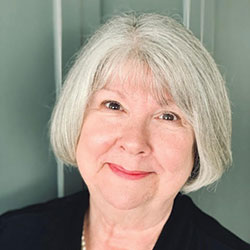By Kathryn Ruscitto, Advisor
Monday, August 23, 2021
To every clinician engaged in primary care, how do we express how important you are to our health system?
Primary care providers are often the first people patients see with a concern, question or fear about what to do when they have a health issue. These essential healthcare professionals watch not only for medical issues, but the social and mental health pressures that often accompany physical conditions. They can see across the continuum, identify where the gaps are, and advocate for community health and other solutions.
However, I increasingly hear that we have lost the voice of the primary care clinician in public policy settings and planning as they face continuous overload, regulations and too many patients. Unfortunately, administrators sometimes forget to start with the boots on the ground before setting policy. Add in COVID-19, and we are overstressing one of the most important parts of our healthcare system.
In researching what is happening nationally, I came across a new and unique primary care paradigm that fully explores the opportunities and issues faced by primary care and calls for a shift in planning and financing. This new model was signed in 2020 by the following organizations:

Kathryn Ruscitto, Advisor
- American Academy of Family Physicians
- American Academy of Pediatrics
- American Board of Family Medicine
- American Board of Internal Medicine
- American Board of Pediatrics
- American College of Physicians
- Society of General Internal Medicine
As patients, we need to understand that while the system is stressed from the COVID-19 pandemic and delayed demands, our primary care system is truly doing more than it can handle. We need to exercise some patience.
In a recent survey, I asked a group of community healthcare leaders to tell me about their good and bad experiences, and what they valued. Listening, engaging the community, being accessible, and connecting the pieces were some of the good aspects. Bad experiences were generally described as feeling disconnected or that the pieces provided did not work well together.
As administrators and policy convenors, we need to become more aware of the societies our clinicians relate to and enable those clinicians to have their voices heard. Are we building sabbaticals, learning opportunities and other supports to relieve some of the burden these clinicians face? I remember a healthcare program that granted leaders a one-month sabbatical every five years so they could completely disengage, think and learn.
We are in a very complicated time. So how do we repair the problems within our system, learn from the current crisis, and use technology and innovation to rebuild a stronger system?
To begin, we do it by listening and supporting the leaders on the front lines — those who know what works and what doesn’t.
Kathryn Ruscitto, Advisor, can be reached at linkedin.com/in/kathrynruscitto or at krusct@gmail.com.





